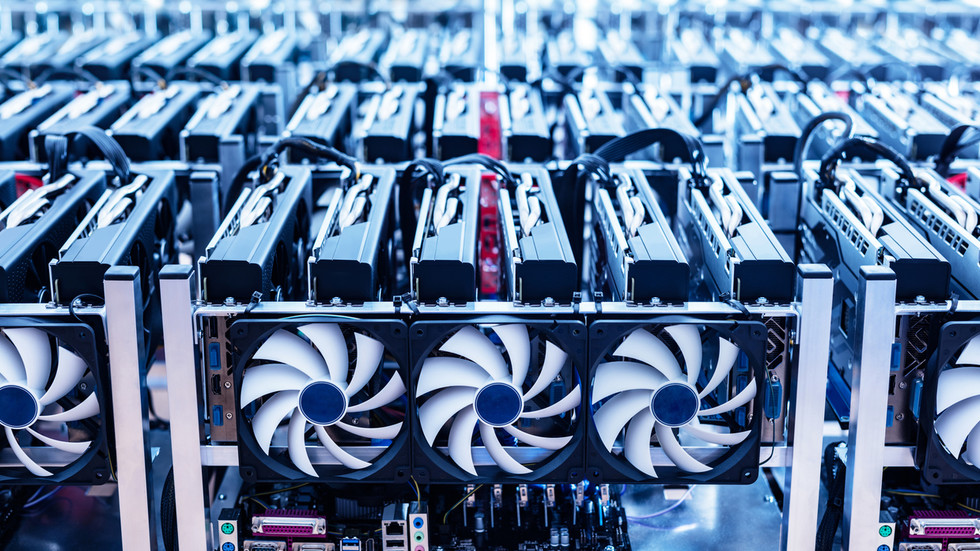
Recycling organic waste to generate electricity is a way to power the energy-intensive process, scientists say
Bitcoin mining farm © Getty Images / NiseriN
Recycling manure from farm animals could help generate an electric power surplus for mining cryptocurrency in Russia, the press service of the Russian Presidential Academy of National Economy and Public Administration (RANEPA) told Gazeta.ru on Tuesday, citing a study published by its research laboratory.
The process of recycling organic waste involves the installation of anaerobic digestion systems on farms and capturing methane gas emitted from manure decomposition, according to RANEPA scientists.
This captured methane could then be used to generate electricity, part of which could be of use for the needs of the farm, while the rest could power the energy-intensive process of Bitcoin mining.
The author of the study, Sodnom Budatarov, believes that cryptocurrency mining will not only recoup the costs of purchasing and operating recycling equipment, but will also facilitate investing in digital assets.
In addition, cryptocurrencies could be used in foreign trade transactions, particularly in light of Western sanctions pressure and the inability to sell or buy the necessary equipment, services, and goods.
“The creation of green mining infrastructure should begin with pig and poultry factories, where a fairly homogeneous mass of waste or by-products is continuously generated in large quantities,” Budatarov told Gazeta.ru.
“The economic feasibility of green mining is that the cost of producing one kW / hour is lower than from a regular electrical ‘socket’, or at least equal to it. However, this electricity is an in-house product, part of which can be used for production needs, and the excess – for mining cryptocurrency as a product with high added value,” Budatarov elaborated, adding that “The estimated payback period for green mining will be from 1.5 to 3 years.”
On Wednesday, the Russian State Duma passed a bill in its first reading to legalize cryptocurrency mining in the country. The legislation outlines that the government, in cooperation with the Central Bank of Russia, will establish regulations for individuals and legal entities engaged in digital currency mining. The Ministry of Digital Development will oversee compliance with these requirements. Additionally, the government retains the authority to prohibit mining activities in specific regions or territories.
In this regard, RANEPA scientists have proposed to supplement the law on mining with provisions legalizing the activities of enterprises mining cryptocurrency based on electricity obtained from the processing of organic waste.




